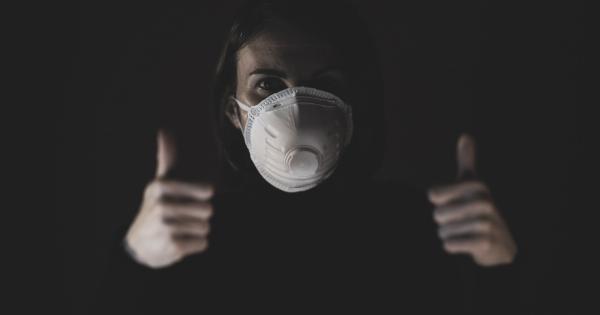Bronchitis is a common respiratory condition characterized by inflammation of the lining of the bronchial tubes. These tubes are responsible for carrying air to and from the lungs.
When the bronchial tubes become inflamed, it can cause symptoms such as coughing, wheezing, chest discomfort, and difficulty breathing. There are two main types of bronchitis: acute bronchitis, which is usually caused by a viral infection, and chronic bronchitis, which is a long-term condition often associated with smoking or exposure to irritants.
Prevention of Bronchitis
While it may not always be possible to prevent bronchitis, there are several steps you can take to reduce your risk of developing the condition:.
1. Avoiding Respiratory Triggers
Avoid exposure to irritants such as tobacco smoke, air pollution, and strong chemicals. If you are a smoker, quitting smoking is one of the most important measures you can take to prevent bronchitis.
2. Practicing Good Hand Hygiene
Frequent handwashing is crucial in preventing the spread of viral infections that can lead to acute bronchitis. Be sure to wash your hands thoroughly with soap and water for at least 20 seconds, especially before eating or touching your face.
3. Getting Vaccinated
Getting vaccinated against the influenza virus can help prevent complications such as bronchitis that may arise from the flu.
Additionally, the pneumococcal vaccine is recommended for individuals at higher risk, such as older adults and those with weakened immune systems.
Treatment Options for Bronchitis
The treatment of bronchitis depends on the type and severity of the condition:.
1. Self-Care Measures
For acute bronchitis, self-care measures are often sufficient to relieve symptoms and promote healing. These measures include:.
2. Rest and Hydration
Getting plenty of rest allows your body to fight off the infection. Additionally, drinking fluids such as water, herbal teas, and warm broths helps keep the airways moist and can help alleviate coughing.
3. Avoiding Irritants
Avoiding exposure to irritants such as cigarette smoke, dust, and chemical fumes can help reduce inflammation in the bronchial tubes and alleviate symptoms.
4. Over-the-Counter Medications
Over-the-counter cough suppressants, expectorants, and pain relievers may be used to relieve symptoms such as cough, mucus production, and chest discomfort.
5. Prescription Medications
In some cases, especially if the bronchitis is severe or caused by a bacterial infection, a healthcare provider may prescribe antibiotics or other medications to address the underlying cause.
6. Breathing Exercises
Practicing deep breathing exercises and using a humidifier or steam inhalation can help loosen mucus and improve breathing.
When to Seek Medical Care
While most cases of acute bronchitis resolve on their own, it is important to seek medical care if you experience:.
1. Persistent High Fever
A fever that lasts more than a few days or is accompanied by other severe symptoms may indicate a more serious infection that requires medical intervention.
2. Shortness of Breath
If you have trouble breathing or feel like you cannot get enough air, seek immediate medical attention. This could be a sign of a more severe respiratory condition.
3. Chest Pain
Chest pain that is persistent or severe should never be ignored, as it may indicate an underlying problem that warrants medical evaluation.
Conclusion
Bronchitis is a common respiratory condition that can cause significant discomfort and affect your quality of life.
By following preventive measures such as avoiding irritants and practicing good hand hygiene, you can reduce your risk of developing bronchitis. In cases where treatment is necessary, self-care measures and medical interventions such as medications or breathing exercises can help alleviate symptoms and promote healing.
If you experience any severe or persistent symptoms, it is important to seek medical care for proper evaluation and treatment.































